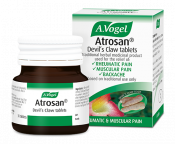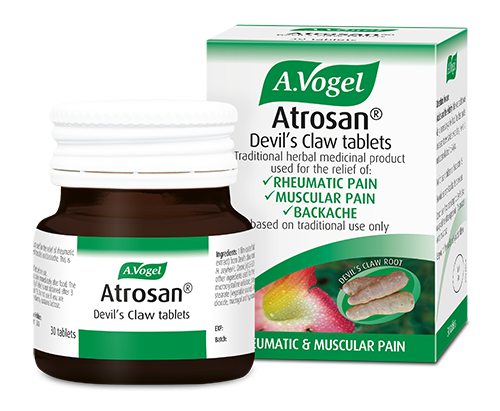Just how healthy are your muscles and joints?
Answer our questions and find out if your flexibility is compromised.
Find out how flexible you areA wide array of supplements are available to aid stiff and painful joints but have you heard of glucosamine? Are you aware of the benefits it is thought to offer? Today I'll be taking a look at exactly how this supplement could help the joints, plus I offer up a few other natural remedies for problem joints.
Much research has been done on glucosamine but, still, it is a supplement that not everyone is aware of. So, to clear things up, today I will cover the following:
If you would like to learn a little more about supplements that can help the joints, this blog also looks into a few natural options, so read on to find out more!
Glucosamine supplements are commonly used to relieve the pain and symptoms associated with osteoarthritis, and other joint issues.1
Glucosamine sulphate is a chemical found in the human body, mainly as part of structural tissue. It is used by the body to produce a variety of other chemicals that are involved in building tendons, ligaments, cartilage and synovial fluid. As a result, the idea is that giving our bodies more glucosamine may help it to make important repairs.
Glucosamine can be fermented from corn, mushrooms and wheat. Alternatively, it is a building block of chitin which is found in the shells of crustaceans and shellfish. Supplements made in this way are not, therefore, suitable for vegans, vegetarians or those allergic to shellfish.
Researchers suggest that taking glucosamine supplements may increase the cartilage and fluid surrounding the joints, as well as helping to prevent the breakdown of these substances.2
Some researchers think it is the 'sulphate' part of glucosamine sulphate which is particularly important.
Sulphate is needed by the body to produce cartilage, and glucosamine helps to incorporate it into the cartilage. This why researchers believe that glucosamine sulphate might work better than other forms of glucosamine, such as glucosamine hydrochloride or N-acetyl glucosamine, which do not contain sulphate.
Glucosamine only works if you take it preventatively, so it can't make up for damage after more than a small amount of wear and tear. It is simply too much to ask glucosamine to restore cartilage completely and, by the time pain develops, this is too late to use it as well.
If you are worried about your joints (i.e. you do a lot of running or other high-impact sports), you should start taking glucosamine early before symptoms develop.
It is also worth noting that glucosamine helps to retain cartilage, but it is not anti-inflammatory. Therefore, if you know that inflammation is at the root of your symptoms, there may be other supplements, such as Devil's Claw, which are more suited to treating this. You can also take Devil's Claw alongside glucosamine, if you think both will be of benefit.

Devil’s Claw can help to relieve general joint pain as well as back, muscular and rheumatic pain.
It reduces the production of inflammatory chemicals, without blocking them completely. This means it doesn’t have the side effects, such as digestive issues, that are associated with other pain-relieving medications.
“This is the only thing that helps the pain in my knees.”

Glucosamine is widely available in tablet form but, with lots of products on the market, it can be a challenge to pick the best one.
I tend to recommend Nature's Best because they do a vegetarian/vegan glucosamine supplement derived from corn, as well as a regular one derived from shellfish. 1,500 mg daily is the required dose of glucosamine (smaller amounts won't work) which Nature's Best provide in a one-a-day tablet.
1. Atrogel Arnica Gel
As I mentioned, glucosamine takes a few weeks, if not months, to show its effects. Therefore, in the meantime, you could benefit from a more fast-acting remedy such as Atrogel Arnica Gel which works within 5 to 10 minutes.
Arnica gel is anti-inflammatory, meaning it can bring relief from joint pain and stiffness. It is safe to use alongside glucosamine - simply apply a little to the affected area as often as you feel necessary.
2. Magnesium
Magnesium helps to relax the muscles so a supplement can be helpful if you are experiencing muscle pain or cramp. Low magnesium may also contribute to inflammation, so keeping your levels topped up could improve joint pain.
It is important to remember that food sources of magnesium are readily available, so it is not always necessary to turn straight to a supplement. Try topping up your dietary intake and see if this helps first - dark leafy greens, pumpkin seeds, oats, bananas and salmon are just some examples of foods that are rich in magnesium.
3. Omega 3
Omega 3 supplements can be helpful long-term to counter inflammatory tendencies, especially If oily fish (which contain omega 3) are not present in the diet regularly.
Any persistent pain, particularly if it is very severe, should be seen by a doctor before you attempt to address the problem at home or with supplements. Once you have received a diagnosis, and provided your doctor gives you the go-ahead, supplements may then be used.
1 https://www.sciencedirect.com/science/article/pii/S0140673600036102
2 https://www.ncbi.nlm.nih.gov/pmc/articles/PMC3150191/

 Looking for a solution to help relieve symptoms such as muscle and joint pain, backache, rheumatic pain and lumbago?
Looking for a solution to help relieve symptoms such as muscle and joint pain, backache, rheumatic pain and lumbago?
Buy now from your local store.
“I have used these for several years and would not wish to be without them.”![]()
To find local independent stores in your area that sell Atrosan Devil’s Claw tablets, simply type your postcode below.

Answer our questions and find out if your flexibility is compromised.
Find out how flexible you areAs the A. Vogel Muscles and Joints advisor, I recommend Atrogel® for the effective relief from aches and pains.
Learn moreYour gut could be to blame for your joint pain! New studies have found potential links between the 'bad' bacteria in the digestive tracts and certain types of joint pain!
Is your gut to blame?Discover the story of Alfred VogelNature is just about the best thing we’ve got!